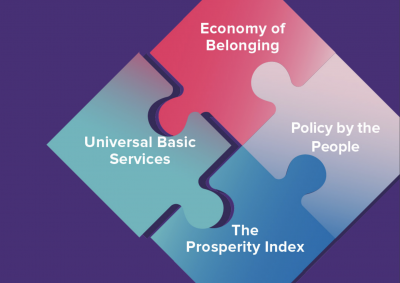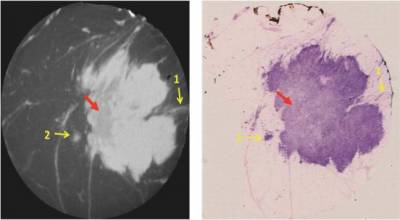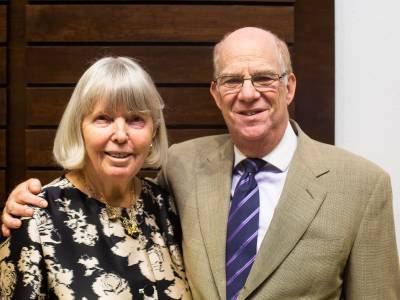Working together to tackle the world's problems
Building of world-leading UCL Neuroscience facility begins
In May we broke ground on the site of our revolutionary new facility, UCL Neuroscience. Due for completion in 2024 it will bring together one of the largest concentrations of brain science expertise anywhere in the world, in a state-of-the-art research and treatment environment. Together research scientists and clinicians will work with patients and industry to find new roads into neurodegenerative diseases such as dementia, the greatest causes of disability worldwide today.
The facility will be home to three bodies: the world-leading UCL Queen Square Institute of Neurology, the headquarters of the UK Dementia Research Institute, and the UCLH National Hospital for Neurology and Neurosurgery (NHNN) - the UK's largest dedicated neurological and neurosurgical hospital.
A project of this scale and ambition has been made possible by partners who share our commitment to the advancement of knowledge of brain function and behaviour. With their support UCL will train the next generation of pioneering scientists and clinicians, transforming our ability to treat devastating neurological and psychiatric disorders.
Rebuilding Prosperity Campaign launched by UCL Institute for Global Prosperity

Likened to the Beveridge report of 1942 which formed the basis for huge reform post-WW2, the IGP campaign reimagines an economic model fit for the 21st century, based on individual and community need rather than top-down measures of wealth and growth. Central to the approach is the Institute’s pioneering development of the UK’s first citizen-led Prosperity Index, a new methodology for defining, measuring and acting to create shared prosperity. Faced with the triple threat of global recession, climate change and widening inequalities highlighted by the pandemic, radical new lines of enquiry such as these offer hope as we search for ways improve quality of life for all and ‘level-up’ our societies.
New x-ray scanner improves accuracy of breast cancer surgery

Existing methods had relied on the removal of tumours and the testing of surrounding tissue for remaining traces of the disease through microscopic examination, with results only available after several days. Now for the first time, X-Ray Phase Contrast Imaging (XPCI) technology will allow surgeons to assess tissue during the surgery, giving 2.5 times better detection rates than before.
As well as improving the patient experience, this new technology has significant potential for use across a number of other soft tissue procedures including intestinal, oesophageal and prostatic surgery, and for diagnostic imaging such as mammography.
£5m donation establishes new centre to study wealth inequality

The Stone Centre brings together the research strengths of the UCL Economics Department with the pioneering teaching approach of the CORE (Curriculum Open-Access Resources in Economics) project which centres on the importance of economics in driving societal and environmental change, and is already transforming the way the subject is taught worldwide.The Centre will provide a global hub for research and learning, bringing new perspectives through ‘cross-field’ work, and with partners at UCL Policy Lab, will share its insights with a wide audience including policy makers, the media and public and private sector leaders.
Images
- Landing page thumbnail: Breaking ground at UCL Neuroscience facility
- Rebuilding Prosperity graphic, credit Institute for Global Prosperity
- Histopathology image (left) compared with x-ray images (right), credit UCL/Nikon
- Cathleen D. and James M. Stone
 Close
Close

